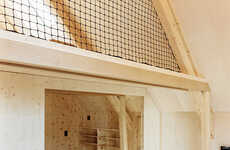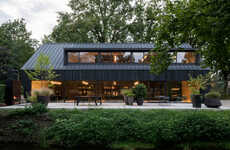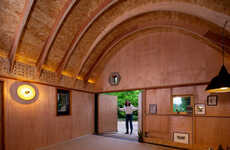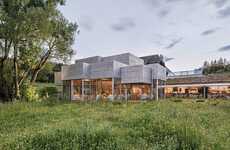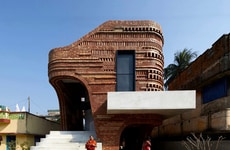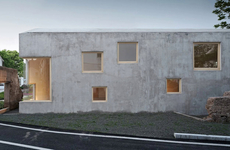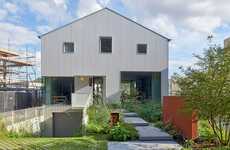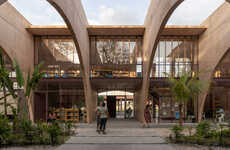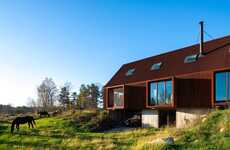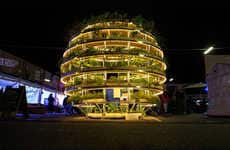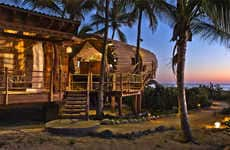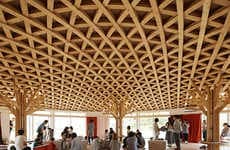
Bernardo Bader's Building References Rural Austrian Architecture
Joey Haar — October 24, 2016 — Art & Design
References: bernardobader & dezeen
Architecture studio Bernardo Bader Architekten has designed a community center in rural Austria that takes inspiration from the surrounding architecture. Though farmers might not consider themselves to be architects, barns and farmhouses have a unique architectural style. In referencing this, Bernardo Bader's community center connects the village to its history.
The community center, which is built at the nexus of the small village of Steinberg am Rofan, nods to the surrounding farming industry with both its structure and its materials. Structurally, the community center takes on an open-concept spatial layout on its interior, with a gabled roof that is also a mainstay of farmhouses.
In terms of materials, the facade of the community center is composed of untreated larch timber that was sourced from the surrounding forests.
The community center, which is built at the nexus of the small village of Steinberg am Rofan, nods to the surrounding farming industry with both its structure and its materials. Structurally, the community center takes on an open-concept spatial layout on its interior, with a gabled roof that is also a mainstay of farmhouses.
In terms of materials, the facade of the community center is composed of untreated larch timber that was sourced from the surrounding forests.
Trend Themes
1. Rural Architecture - Developing community infrastructure inspired by rural architecture can lead to low-cost, unique and sustainable building options.
2. Open-concept Spatial Layouts - Exploring open-concept layouts in community centers can lead to more inclusive and flexible spaces.
3. Sustainable Materials - Using locally sourced and untreated materials can lead to community centers that are sustainable, cost-efficient and environmentally friendly.
Industry Implications
1. Architecture - Architecture firms can explore rural design elements and sustainable materials to create community centers that have a low-impact on the environment.
2. Community Development - Community development organizations can incorporate unique and sustainable architectural design elements in their projects, resulting in infrastructure that better reflects local history and meets resident needs.
3. Forestry - The use of locally sourced and untreated timber materials provides a new market for forestry businesses, and can help promote sustainable management practices in local forests.
3.7
Score
Popularity
Activity
Freshness

